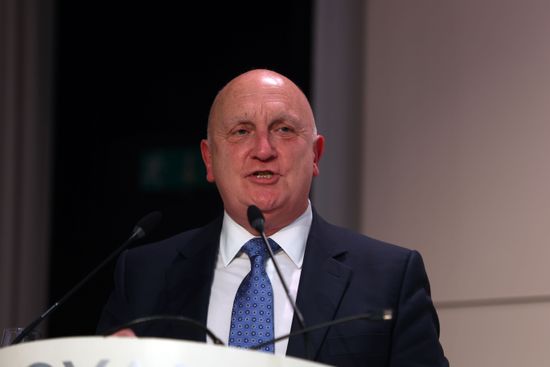
Manufacturers claim that the economy is suffering as a result of the deteriorating transportation system, with inadequate roads driving up logistics costs.
The most well-known manufacturers in the UK have informed Rachel Reeves that her autumn budget needs to address a decade-long decline in national infrastructure that is harming economic growth.
More than half of the manufacturers surveyed said that the nation’s national road infrastructure had gotten worse over the previous ten years, making it more challenging and expensive to produce and export British goods, according to the results of a poll by the industry association Make UK.
Three-quarters of the companies surveyed believed that the existence of adequate road networks was a requirement for supply chains, according to the results of a survey by the trade association, which represents 20,000 industrial businesses in the United Kingdom. Furthermore, more than half of the companies disagreed with Rishi Sunak’s decision to reject the northern section of HS2.
According to the research that was presented before the chancellor’s budget, which was presented on October 30th, the poor state of Britain’s roads had led to increased logistics costs, which in turn caused challenges for labour mobility and obtaining talents.
The research showed that there are significant geographical differences in the condition of the infrastructure, with firms in the north of England being more critical of the roads than businesses in any other part of the United Kingdom.
The former prime minister’s decision to scrap the northern portion of the High Speed Two (HS2) project received opposition from as many as 57% of businesses. This number increased to 61% in the northern region of England.
Despite this, the study discovered that there had been advancements in digital infrastructure over the course of the previous decade. These advancements were a result of investments made by the previous government in 5G connections and other emerging technologies.
The chancellor announced cuts to some infrastructure projects at the end of the previous month in response to the discovery of a £22 billion “hole” in the government budget, which she claims the Conservatives left. These projects included roads, railroads, and hospitals.
However, Make UK stated that the chancellor needed to make a commitment to long-term infrastructure projects as soon as possible in order to guarantee that the United Kingdom is appealing to international enterprises and investors.

Make UK’s chief executive officer, Stephen Phipson, made the following statement: “After years of underinvestment, this new government now needs to be bold on its infrastructure investment and realise the productivity improvements that will result from doing so.”
“Repairing our roads should be at the top of this agenda,” the British manufacturers have stated, expressing their desire to see an immediate focus on A roads and highways. Manufacturers want to see greater local decision-making and assistance for local authorities to speed up planning processes in order to assist in making this a reality within their manufacturing sector.
According to the statement, “Increased investment in local bus networks to connect out-of-town areas would also give more young people the opportunity to work in the well-paid manufacturing sector.” On the other hand, long-term rail projects are desperately needed to make more east-west connections in order to truly deliver an equal share of opportunities across the entirety of the United Kingdom.
A spokeswoman for the Department of Transportation said, “We are committed to tackling this immediately.” We are aware of the poor condition of our local roads.
We have made a commitment to updating the road network, which includes assisting local authorities in repairing up to one metre more potholes each year.